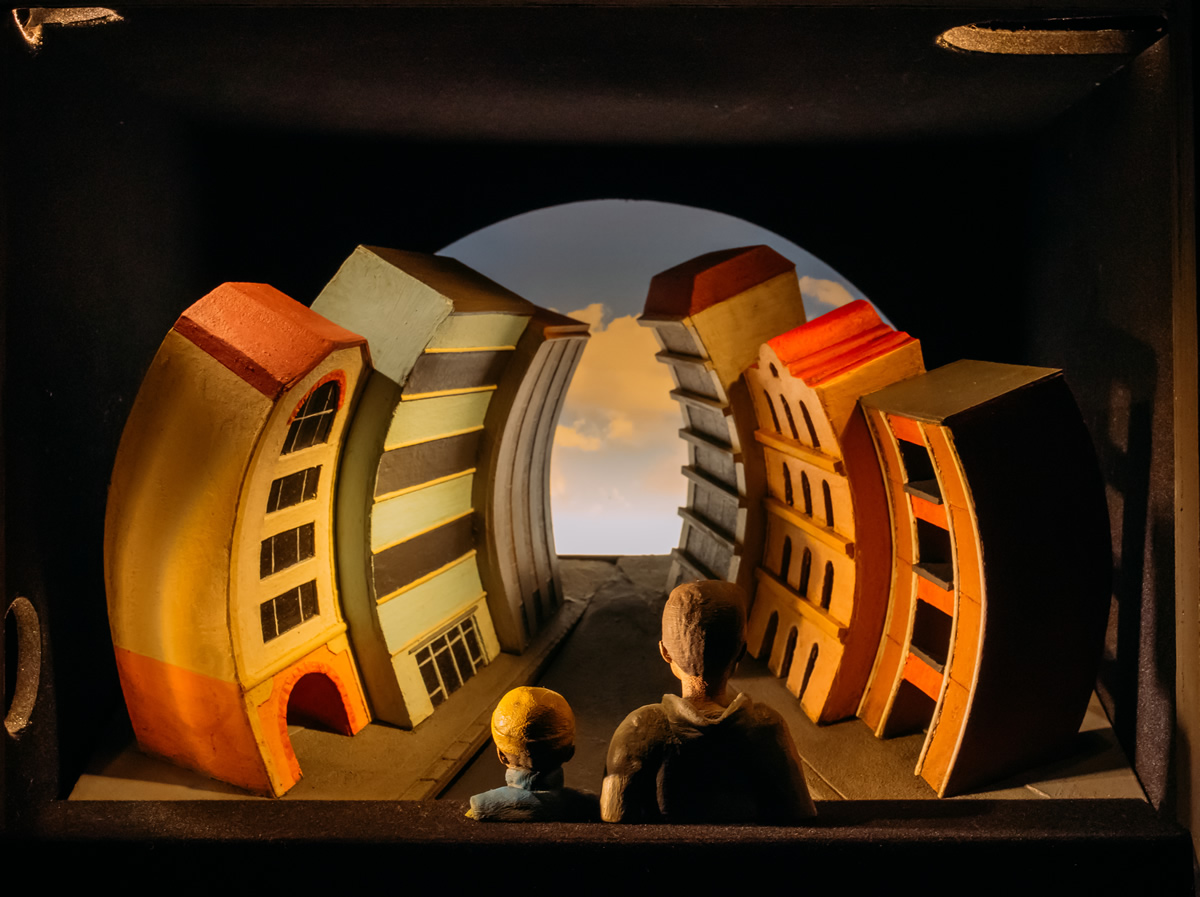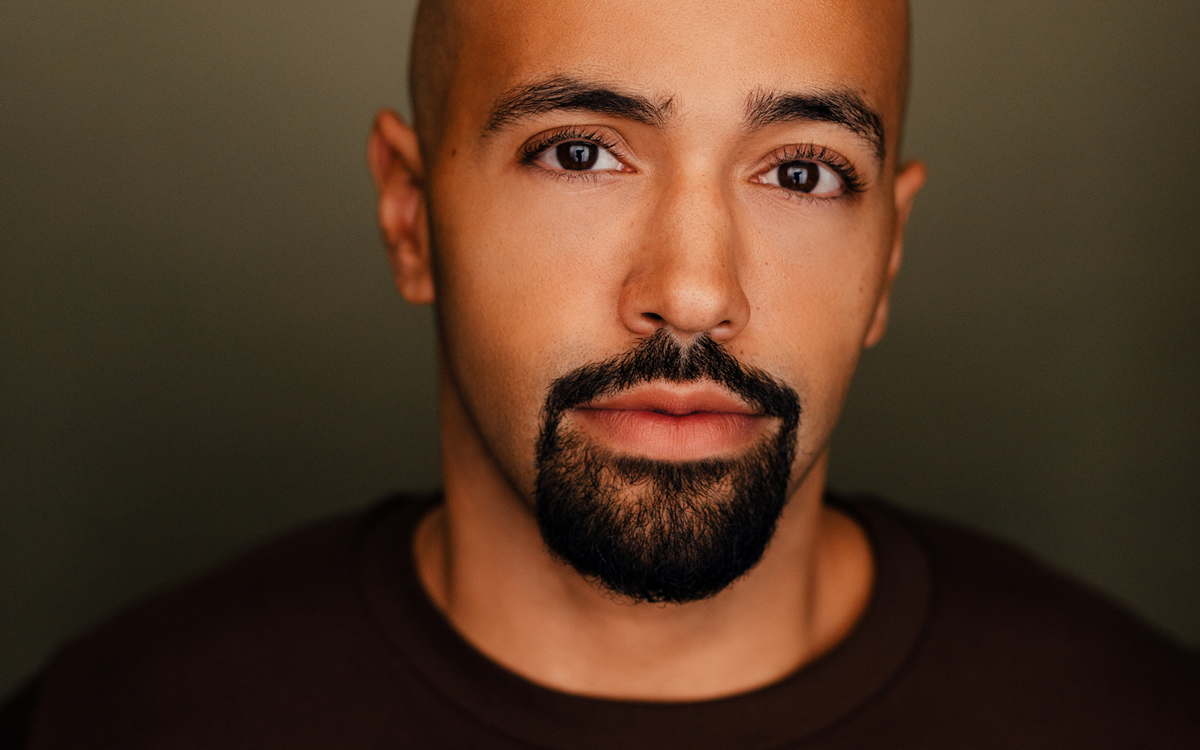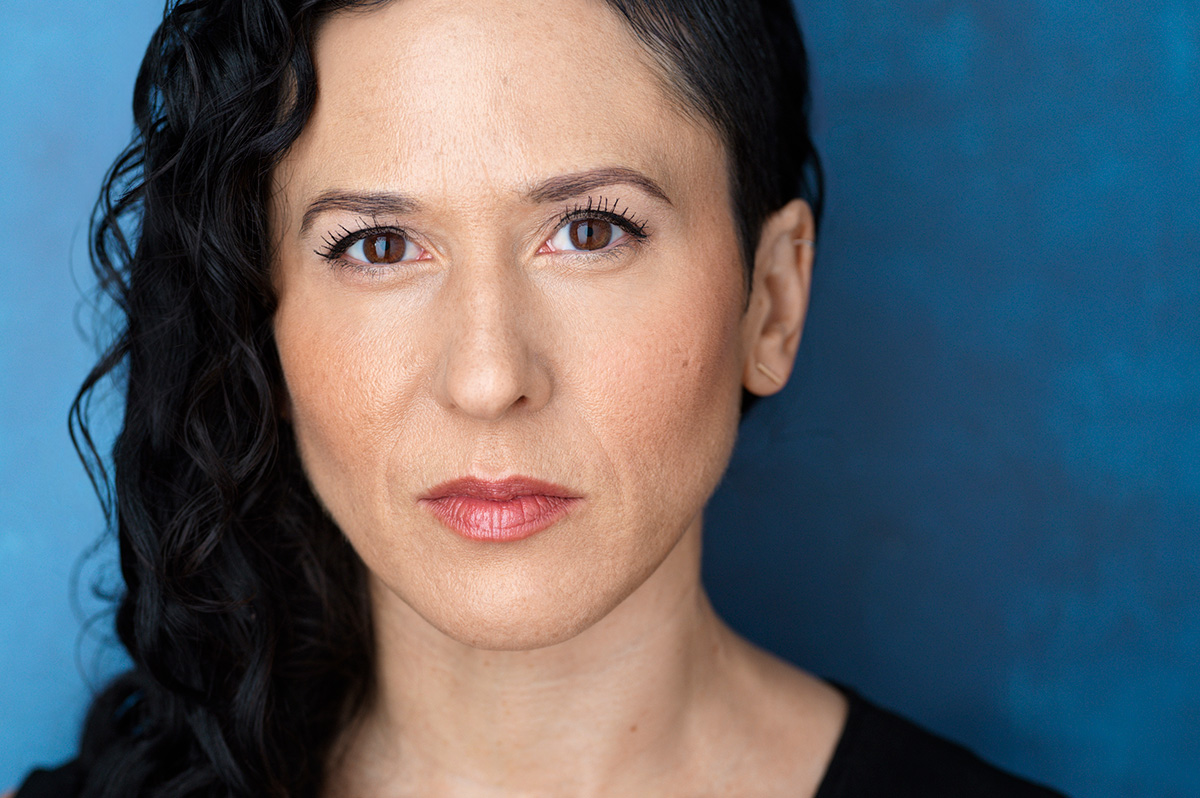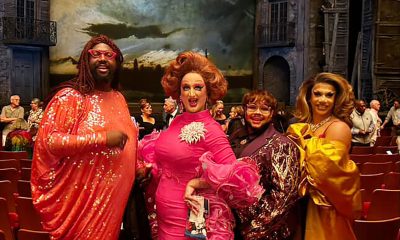Theater
D.C.’s theater scene roared back to life in 2022
Understudies emerge as heroes amid ongoing COVID struggles

The first thing I saw in 2022 seemed crafted with the pandemic in mind. After a long closure, Studio Theatre reopened in January with “Flight,” the story young Kabir who along with his older brother Aryan whose arduous journey takes them from their battered homeland Afghanistan in search of a future in the U.K.
Using dioramas, tiny modeled figures, voiceovers, and individual peep-show style booths for audience seating, Vox Matus (an innovative Glasgow-based theater company) created something unique and marvelous. The riveting hybrid theater/installation premiered at Edinburgh Festival in 2017.
“Flight” remains a favorite. Here’s a sampling of other highlights from the year’s big theatrical output.
In April, New York-based playwright Morgan Gould spent time at Round House workshopping her new play “Jennifer, Who Is Leaving,” a witty dark comedy about women caregivers. The play was inspired by Gould’s late gay grandfather Joey and his time spent at a nursing home where his catty sense of humor took a wild turn. Round House plans to present the work as a fully staged production in the spring. So far, local Helen Hayes Award winners Kimberly Gilbert and Nancy Robinette are on board as cast members. Gould will direct.
Woolly Mammoth’s 2022 spring offering “There’s Always the Hudson,” starred out actor Justin Weaks opposite Paola Lázaro (also the work’s author) as best friends who make a pact to off themselves after settling scores against those who sexually abused them. It was a bold production, courageously acted and unafraid to unabashedly go for both laughs and some heartbreaking moments.
As the title character of “Hamilton” in the national tour of the Broadway musical (moored to the Kennedy Center Opera House from August through October), handsome Jean Pierre Gonzalez approached the Founding Father with a serious intent on stage and off.
In a Blade interview, the Bronx-born gay Latinx actor spoke to the enormity of the job: “It’s a powerful thing. We all learned history in school. We know who’s who when we look at a textbook; but when people who look like you are telling the story, it shifts.”

In late summer, National Theatre hosted the tour of “Six” which, for me, proved an unexpected treat. Half rock concert/half Broadway musical, the British-born show, tells the story of Henry VIII’s wives from the mostly doomed women’s perspectives. Fast-moving, energetic, and smart, the show filled the stage with an uber-talented cast of women, and with its flashy staging and smart book, the production easily captured the imagination of Tudor history buffs and Vegas show aficionados alike.
At the beginning of 2022, masks and proof of vaccination were required at most venues. That’s different now, but the relaxing of health and safety protocols hasn’t happened uniformly. Some theaters, including the Kennedy Center and the National, became mask optional in the fall. The Shakespeare Theatre Company and Signature Theatre currently schedule performances with masks required and others with masks recommended, while Arena Stage, and a few others – last I checked – still require masks. It’s wise to check venue websites when making plans.
Throughout year, performances were still disrupted by the pandemic, and in many cases, understudies emerged as real heroes. At a moment’s notice, they were asked to go on when principal actors were sent home with a positive COVID test. Without stand-ins shows wouldn’t have happened.
As an understudy with the “Dear Evan Hansen” road show that played at the Kennedy Center in September, 19-year-old out actor Pierce Wheeler saved the day more than once. While touring, he was unexpectedly called on to cover for both Evan and supporting character Jared Kleinman.
At Mosaic Theatre in November, Antonio Michael Woodard shone as the title character in “The Ballad of Emmett Till,” the first part of playwright Ifa Bayeza’s “The Till Trilogy.” Playing the Black youth over the last two weeks of his life, Woodard nailed the 14-year-old’s exuberance, sensitivity, and frustrations. Out actors Jaysen Wright and Vaughn Ryan Midder gave terrific supporting performances as both Till’s buddies and the vicious men who murdered him for supposedly whistling at a white woman.
In November, Arena Stage presented “My Body No Choice,” a collection of riveting monologues – fiction and nonfiction – written by eight notable female writers expressly for female actors. Brilliantly helmed by Arena Stage’s outgoing artistic director Molly Smith, the impeccably staged work was a direct response to the Supreme Court’s overturning of Roe v. Wade in June. On receipt of the devastating decision, Smith set to work creating a theater piece that would provide a forum for women to share reactions to a decision that sets them back 50 years. And we thank her.
Theater
‘Andy Warhol in Iran’ a charming look at intersection of art, politics
Mosaic production plumbs kidnapping plot of iconic artist for humor

‘Andy Warhol in Iran’
Through July 6
Mosaic Theater Company at Atlas Performing Arts Center
1333 H St., N.E., WDC
$70
Mosaictheater.org
Behind the blasé veneer, Andy Warhol was more curious than people knew. Particularly when it came to money. He kept a close eye on how the ultra-rich lived, what fellow artists were being paid and who was paying them, and, of course, all the new and more saleable ways of making and selling art.
In playwright Brent Askari’s “Andy Warhol in Iran,” now playing at Mosaic Theater Company, Warhol (Alex Mills) is brought outside of his usual area of interest when he lands face to face with a young revolutionary. While Warhol could be artistically revolutionary, he didn’t connect with the idea of forgoing the pursuit of money and fame for the infinitely more difficult task of achieving social justice.
The 90-minute play is not fully factual, but rather inspired by Warhol’s real life 1976 trip to Tehran to make portraits of the royal Pahlavi family in the waning days of their reign, with a focus on Farah Diba, the Shah’s elegant wife and Iran’s last empress.
The action unfolds in a Tehran hotel suite boasting a glorious view of the snowcapped Alborz Mountains not far from Iran’s vibrant and bustling capital. It’s here, disguised as room service, that Farhad (played by Nathan Mohebbi) gains entrance to Warhol’s rooms, seeking to kidnap the pop art star to garner attention for the university students’ movement.
Warhol meets the armed intruder with a sort of wide-eyed wonderment, flummoxed why he has been selected for abduction. Warhol can’t understand why a young man like Farhad wouldn’t prefer to be paid a big ransom on the spot, or be cast as a star in one of the Warhol Factory flicks.
When Farhad replies it’s because Warhol is the most decadent artist in the world, Warhol mistakenly takes it for the ultimate compliment. After all, his biggest successes had been connected to celebrity and consumerism (think Campbell’s Soup Cans. 1962).
For Warhol, decadence is aspirational. He made portraits of financiers, movie stars, and jet setters. In fact, he’d been obsessed with the lives of the rich and famous since he was a small kid in Pittsburgh thumbing through Photoplay Magazine while bed bound with Saint Vitus Dance.
Accompanying Warhol to Tehran (unseen) are his business manager Fred Hughes, and Bob Colacello, editor of Interview magazine. Together, they make a merry trio of gay social climbers. These kinds of trips were a boon to the artist. Not only did they solidify a new strata of high society contacts, but were also superbly lucrative, thickly padding the painter’s pockets.
While in Iran, Warhol wanted only to view Farah’s vast world-class collection of jewels, sample the caviar on tap, and get his Polaroids. Then he’d fly first class back to New York and transfer the images to silk screen and sell the portraits to the Persian royals at a hefty price. He didn’t foresee any obstacles along the way.
Serge Seiden’s direction is spot on. He’s rendered a wonderfully even two-hander with a pair of terrifically cast actors. And Seiden plumbs the piece for humor mostly drawn from the absurdity of the situation without missing any of the serious bits.
As Warhol, out actor Mills is instantly recognizable as the eccentric artist. He’s wearing the button-down shirt, jeans, blazer, glasses, and, of course the famed shock of white hair wig (here a little more Karen than Andy). His portrayal is better than an imitation. He gives a bit of the fey and confused, but has also infuses him with a certain dynamism.
The energy works well with the intensity of Mohebbi’s would-be kidnapper Farhad. And while it isn’t a romance, it’s not impossible to think that Warhol might fall for a handsome male captor.
The connection between art and politics is almost always interesting; and though not a super deep dive into the era or the life of an artist, “Andy Warhol in Iran” is a compelling, charming, and sometimes funny glimpse into that intersection.
Theater
‘Hunter S. Thompson’ an unlikely but rewarding choice for musical theater
‘Speaks volumes about how sad things land on our country’

‘The Untitled Unauthorized Hunter S. Thompson Musical’
Through July 13
Signature Theatre
4200 Campbell Ave., Arlington, Va.
$47 to $98
Sigtheatre.org
The raucous world of the counterculture journalist may not seem the obvious choice for musical theater, but the positive buzz surrounding Signature Theatre’s production of Joe Iconis’s “The Untitled Unauthorized Hunter S. Thompson Musical” suggests otherwise.
As the titular, drug addled and gun-toting writer, Eric William Morris memorably moves toward his character’s suicide in 2005 at 67. He’s accompanied by an ensemble cast playing multiple roles including out actor George Salazar as Thompson’s sidekick Oscar “Zeta” Acosta, a bigger than life Mexican American attorney, author, and activist in the Chicano Movement who follows closely behind.
Salazar performs a show-stopping number — “The Song of the Brown Buffalo,” a rowdy and unforgettable musical dive into a man’s psyche.
“Playing the part of Oscar, I’m living my Dom daddy activist dreams. For years, I was cast as the best friend with a heart of gold. Quite differently, here, I’m tasked with embodying all the toxic masculinity of the late ‘60s, and a rampant homophobia, almost folded into the culture.”
He continues, “My sexuality aside, I like to think that Oscar would be thrilled by my interpretation of him in that song.
“Our upbringings are similar. I’m mixed race – Filipino and Ecuadorian and we grew up similarly,” says Salazar, 39. “He didn’t fit in as white or Mexican American, and fell somewhere in the middle. Playing Oscar [who also at 39 in 1974 forever disappeared in Mexico], I pulled out a lot of experience about having to code switch before finally finding myself and being confident just doing my own thing.
“As we meet Oscar in the show we find exactly where’s he’s at. Take me or leave me, I couldn’t care less.”
In 2011, just three years after earning his BFA in musical theater from the University of Florida in Gainesville, Salazar fortuitously met Iconis at a bar in New York. The pair became fast friends and collaborators: “This is our third production,” says George. “So, when Joe comes to me with an idea, there hasn’t been a moment that I don’t trust him.”
In “Be More Chill,” one of Iconis’s earlier works, Salazar originated the role of Michael Mell, a part that he counts as one of the greatest joys of artistic life.
With the character, a loyal and caring friend who isn’t explicitly queer but appeals to queer audiences, Salazar developed a fervent following. And for an actor who didn’t come out to his father until he was 30, being in a place to support the community, especially younger queer people, has proved incredibly special.
“When you hear Hunter and Oscar, you might think ‘dude musical,’ but I encourage all people to come see it.” Salazar continues, “Queer audiences should give the show a shot. As a musical, it’s entertaining, funny, serious, affecting, and beautiful. As a gay man stepping into this show, it’s so hetero and I wasn’t sure what to do. So, I took it upon myself that any of the multiple characters I play outside of Oscar, were going to be queer.
Queer friends have seen it and love it, says Salazar. His friend, Tony Award-winning director Sam Pinkleton (“Oh, Mary!”) saw Hunter S. Thompson at the La Jolla Playhouse during its run in California, and said it was the best musical he’d seen in a very long time.
“Since the work’s inception almost 10 years ago, I was the first Oscar to read the script. In the interim, the characters’ relationships have grown but otherwise there have been no major changes. Still, it feels more impactful in different ways: It’s exciting to come here to do the show especially since Hunter S. Thompson was very political.”
Salazar, who lives in Los Angeles with his partner, a criminal justice reporter for The Guardian, is enjoying his time here in D.C. “In a time when there are so many bans – books, drag queens, and travel — all I see is division. This is an escape from that.”
He describes the Hunter Thompson musical as Iconis’s masterpiece, adding that it’s the performance that he’s most proud of to date and that feels there a lot of maturity in the work.
“In the play, Thompson talks to Nixon about being a crook and a liar,” says Salazar. “The work speaks volumes about how sad things land on our country: We seem to take them one step forward and two steps back; the performance is almost art as protest.”
Theater
A hilarious ‘Twelfth Night’ at Folger full of ‘elegant kink’
Nonbinary actor Alyssa Keegan stars as Duke Orsino

‘Twelfth Night’
Through June 22
Folger Theatre
201 East Capitol St., S.E.
$20-$84
Folger.edu
Nonbinary actor Alyssa Keegan (they/them)loves tapping into the multitudes within.
Currently Keegan plays the melancholic Duke Orsino in Folger Theatre’s production of Shakespeare’s romantic comedy “Twelfth Night.” Director Mei Ann Teo describes the production as “sexy, hilarious, and devastating” and full of “elegant kink.”
Washington-based, Keegan enjoys a busy and celebrated career. Her vast biography includes Come From Away at Ford’s Theatre; Cat on a Hot Tin Roof (Helen Hayes Award, Best Actress) and Paula Vogel’s How I Learned to Drive, both at Round House Theatre; Diana Son’s Stop Kiss directedby Holly Twyford for No Rules Theatre Company; and Contractions at Studio Theatre, to name just a few.
In addition to acting, Keegan works as a polyamory and ethical non-monogamy life and relationship coach, an area of interest that grew out of personal exploration. For them, coaching seems to work hand in hand with acting.
WASHINGTON BLADE: You’re playing the lovesick Orsino in Twelfth Night. How did that come about?
ALYSSA KEEGAN: The director was looking to cast a group of actors with diverse identities; throughout auditions, there were no constraints regarding anyone’s assigned sex at birth. It was really a free for all.
BLADE: What’s your approach to the fetching, cod-piece clad nobleman?
KEEGAN: Offstage I identify as completely nonbinary; I love riding in this neutral middle space. But I also love cosplay. The ability to do that in the play gives me permission to dive completely into maleness.
So, when I made that decision to play Orsino as a bio male, suddenly the part really cracked open for me. I began looking for clues about his thoughts and opinions about things like his past relationships and his decision not to date older women.
Underneath his mask of bravura and sexuality, and his firmness of feelings, he’s quite lonely and has never really felt loved. It makes sense to me why his love for Olivia is so misguided and why he might fall in love with the Cesario/Viola character.
BLADE: As an actor, do you ever risk taking on the feelings of your characters?
KEEGAN: Prior to my mental health education, yes, and that could be toxic for me. I’ve since learned that the nervous system can’t tell the difference between real emotional distress and a that of a fully embodied character.
So, I created and share the Empowered Performer Project. [a holistic approach to performance that emphasizes the mental and emotional well-being of performing artists]. It utilizes somatic tools that help enormously when stepping into a character.
BLADE: Has changing the way you work affected your performances?
KEEGAN: I think I’m much better now. I used to have nearly debilitating stage fright. I’d spend all day dreading going onstage. I thought that was just part of the job. Now, I’ve learned to talk to my body. Prior to a performance, I can now spend my offstage time calmly gardening, working with my mental health clients, or playing with my kid. I’m just present in my life in a different way.
BLADE: Is Orsino your first time playing a male role?
KEEGAN: No. In fact, the very first time I played a male role was at the American Shakespeare Center in Staunton, Va. I played Hipolito in Thomas Middleton’s The Revenger’s Tragedy.
As Hipolito, I felt utterly male in the moment, so much so that I had audience members see me later after the show and they were surprised that I was female. They thought I was a young guy in the role. There’s something very powerful in that.
BLADE: Do you have a favorite part? Male or female?
KEEGAN: That’s tough but I think it’s Maggie the Cat. I played the hyper-female Maggie in Tennessee Williams’ Cat on a Hot Tin Roof at Round House. In the first act she didn’t stop talking for 51 minutes opposite Gregory Wooddell as Brick who barely had to speak. That lift was probably the heaviest I’ve ever been asked to do in acting.
BLADE: What about Folger’s Twelfth Night might be especially appealing to queer audiences?
KEEGAN: First and foremost is presentation. 99% of the cast identify as queer in some way.
The approach to Shakespeare’s text is one of the most bold and playful that I have ever seen. It’s unabashedly queer. The actors are here to celebrate and be loud and colorful and to advocate. It’s a powerful production, especially to do so close to the Capitol building, and that’s not lost on any of us.


















